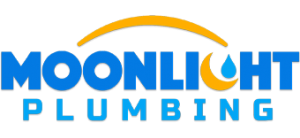Hot water is a crucial component of any shower, and when it stops flowing, it can be a major inconvenience. There are several potential causes for this problem, and it’s important to understand them in order to get your hot water back as soon as possible. In this post, we’ll explore some of the most common reasons why hot water may not be coming out of your shower, as well as what you can do to fix the issue.
Connecticut Plumber Shares Insight On Potential Causes
One of the most common causes of hot water not coming out of the shower is a malfunctioning water heater. Your water heater is responsible for heating the water that flows through your pipes, and if it’s not working properly, the water that comes out of your shower will be cold. This can be caused by a variety of issues, such as a broken thermostat, a clogged burner, or a malfunctioning heating element. In most cases, a professional Connecticut plumber will be able to diagnose and repair the problem.
Another common cause of hot water not coming out of the shower is a clogged or broken shower head. If your shower head is clogged with mineral buildup, the water flow will be restricted, and the water that comes out will be colder. Additionally, if the showerhead is broken, water may not flow through it at all. If you suspect that your shower head is the problem, you can try cleaning it or replacing it.
A third cause of hot water not coming out of the shower is a problem with the plumbing. If the pipes that supply hot water to your shower are clogged or broken, the water flow will be restricted, and the water that comes out will be colder. In some cases, the problem may be due to a leak in the pipes, which can cause water to escape before it reaches the showerhead. A plumber will be able to diagnose and fix any issues with the plumbing.
Finally, it is also possible that the problem is with the water supply from the city. It could be an issue with the water being too cold coming from the source, this can be verified by checking the water temperature at different points in your home. If this is the case, it will require the help of the local water department to fix the issue.
Contact a Trusted Plumber Today
If you’re experiencing a lack of hot water coming out of your shower, it’s important to understand that there are several potential causes. By understanding the possible reasons, you can take the necessary steps to get your hot water back as soon as possible. If you, or someone you know, is experiencing hot water issues contact our licensed, professional Connecticut plumber today by calling (860) 863-8189. We’re here to help!






























